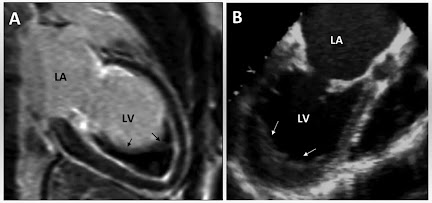Aasgaduli.blogspot.com
Blood
Definition : Blood is a liquid special type of connective tissue, it composed by liquid (plasma) and solid (erythrocytes, leukocytes, thrombocytes) parts Which circulate in closed vascular system. It supplies oxygen and nutrients. And remove the waste metabolic products.
Blood is also known as...
1. Fluid of health : because it help to protect body from disease and excrete out wast products.
2. Fluid of growth : because it carries nutrients to other cells.
3. Fluid of life : because it carries oxygen from lungs to tissue and carbon dioxide from tissue to lungs.
Properties of blood :
Colour - Blood is red in colour (Arterial blood is scarlet red because presence of high oxygen, Venous blood is purpul red because presence of high carbon dioxide).
Volume -
Average in normal adult 4.5 - 5 liter.
In newborn babies 450ml.
It is about 8% of total body weight in a normal young adult.
Reaction and pH - Reaction slightly alkaline. pH 7.4
Specific gravity -
Total blood - 1.052 - 1.061
Only blood cells - 1.092 - 1.101
Only plasma - 1.022 - 1.026
Viscosity - Blood is five time more viscous than water ( it is mainly due to the blood cells and plasma protein).
Composition of blood :
1. Plasma - 55%
A. Water - 91-92%
B. Gases - Oxygen, Carbon dioxide, Nitrogen.
C. Solid - 8-9%
a. Organic substances :
1. Proteins : Albumin, Globulin, Fibrinogen.
2. Amino acids : Essential, Nonessential.
3. Carbohydrate: Glucose.
4. Fats
5. Enzymes: Amylase, Lipase, Esterase, Protease, Transaminase, Acid phosphotase, Carbonic anhydrase, Alkaline phosphatase.
6. Antibodies
7. Internal secretion: Hormone.
8. Non protein substances : Ammonia, Creatinine, Creatine, Xanthine, Urea, Uric acid, Hypoxanthine.
b. Inorganic substances: Na, Ca, K, Cl, Fe, Cu, HCo3, phospahate, Magnesium.
2. Formed elements - 45%
a. R.B.Cs/Red blood cells/ Erythrocytes.
b. W.B.Cs/ white blood cells/ leukocytes.
c. Platelets/Thrombocytes.
Functions of blood :
1. Respiratory function - Oxygen transport from lungs to tissue. And carbon dioxide transport from tissue to lungs.
2. Excretory function - Blood excretes the wast products and substances.
3. Nutrition - Blood carries nutrition ( which absorbed) from intestine to differents part of the body.
4. Vehicle - Blood act as a vehicle through which transports hormone, vitamins and other chemicals.
5. Water balance - Blood contain water which can be freely interchange with ISF so blood maintain water balance.
6. Acid base balance - Blood maintain the acid base balance by the it's buffer action.
7. Ionic balance - Blood maintain the ions between cells and fluid.
8. Regulates body temperature - Water of blood has...
a. High specific gravity - it can absorbed large amount of heat.
b. High conductivity - it distributes heat quickly.
c. High latent energy of evaporation.
9. Defensive ( protective) function - Blood contains W.B.C. which protect the body from forign bodies.
10. Coagulation - Blood contains platelates which help coagulation and prevent bleeding.
11. Regulation of blood pressure: By changing it's viscosity blood maintain blood pressure.
Download books...
Physiology symbulingum
Gyton and Hall Medical physiology
Properties of blood :
Colour - Blood is red in colour (Arterial blood is scarlet red because presence of high oxygen, Venous blood is purpul red because presence of high carbon dioxide).
Volume -
Average in normal adult 4.5 - 5 liter.
In newborn babies 450ml.
It is about 8% of total body weight in a normal young adult.
Reaction and pH - Reaction slightly alkaline. pH 7.4
Specific gravity -
Total blood - 1.052 - 1.061
Only blood cells - 1.092 - 1.101
Only plasma - 1.022 - 1.026
Viscosity - Blood is five time more viscous than water ( it is mainly due to the blood cells and plasma protein).
Composition of blood :
1. Plasma - 55%
A. Water - 91-92%
B. Gases - Oxygen, Carbon dioxide, Nitrogen.
C. Solid - 8-9%
a. Organic substances :
1. Proteins : Albumin, Globulin, Fibrinogen.
2. Amino acids : Essential, Nonessential.
3. Carbohydrate: Glucose.
4. Fats
5. Enzymes: Amylase, Lipase, Esterase, Protease, Transaminase, Acid phosphotase, Carbonic anhydrase, Alkaline phosphatase.
6. Antibodies
7. Internal secretion: Hormone.
8. Non protein substances : Ammonia, Creatinine, Creatine, Xanthine, Urea, Uric acid, Hypoxanthine.
b. Inorganic substances: Na, Ca, K, Cl, Fe, Cu, HCo3, phospahate, Magnesium.
 |
| Plasma |
2. Formed elements - 45%
a. R.B.Cs/Red blood cells/ Erythrocytes.
b. W.B.Cs/ white blood cells/ leukocytes.
c. Platelets/Thrombocytes.
 |
| Substances in blood |
Functions of blood :
1. Respiratory function - Oxygen transport from lungs to tissue. And carbon dioxide transport from tissue to lungs.
2. Excretory function - Blood excretes the wast products and substances.
3. Nutrition - Blood carries nutrition ( which absorbed) from intestine to differents part of the body.
4. Vehicle - Blood act as a vehicle through which transports hormone, vitamins and other chemicals.
5. Water balance - Blood contain water which can be freely interchange with ISF so blood maintain water balance.
6. Acid base balance - Blood maintain the acid base balance by the it's buffer action.
7. Ionic balance - Blood maintain the ions between cells and fluid.
8. Regulates body temperature - Water of blood has...
a. High specific gravity - it can absorbed large amount of heat.
b. High conductivity - it distributes heat quickly.
c. High latent energy of evaporation.
9. Defensive ( protective) function - Blood contains W.B.C. which protect the body from forign bodies.
10. Coagulation - Blood contains platelates which help coagulation and prevent bleeding.
11. Regulation of blood pressure: By changing it's viscosity blood maintain blood pressure.
Download books...
Physiology symbulingum
Gyton and Hall Medical physiology






No comments:
Post a Comment
Please do not enter any spam link in the comment box